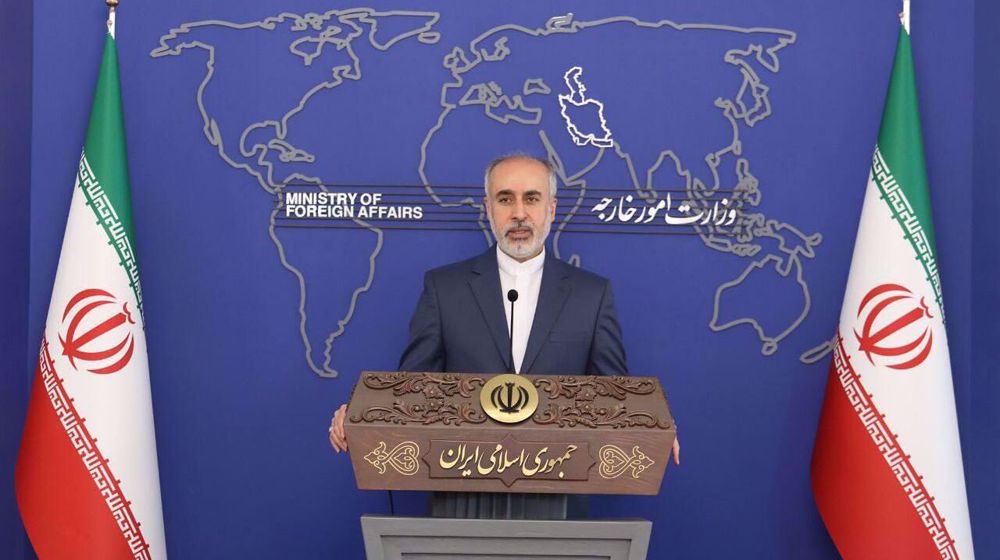
Iran’s Foreign Ministry’s spokesman has expressed Tehran’s support for the expansion of transportation routes in the region as Turkey and Azerbaijan plan to create a land corridor between the two countries via Armenia but reiterated the Islamic Republic’s opposition to any changes to international borders.
Nasser Kan’ani made the remarks at a news conference on Monday as he commented on the recent statements of Turkish President Recep Tayyip Erdogan in which he expressed his country’s determination to set up the so-called Zangezur corridor, with the aim of boosting Ankara’s trade ties with Azerbaijan and Central Asia.
Yerevan, however, has opposed the plans on the grounds that it would violate Armenia’s sovereignty.
We support “the expansion of transit routes and transportation networks in a way that serves the interests of all regional countries, but at the same time we emphasize that we oppose any change to international borders,” Kan’ani said.
He also expressed Tehran’s support for resolving the disputes in the Caucasus region, including the one between Armenia and Azerbaijan over Nagorno-Karabakh, through political means.
“We believe differences in the Caucasus can be resolved via political dialogue and regional capacities.”
The spokesman stressed that Tehran is against any extra-regional intervention and foreign presence in the Caucasus.
He noted that Iran supports regional dialogue within the framework of the 3+3 format cooperation mechanism, expressing Tehran's readiness to help find a solution to the conflict.
The 3+3 format cooperation mechanism features the three South Caucasus countries of Armenia, Georgia, and Azerbaijan plus Russia, Turkey, and Iran.
Kan'ani further said that the visit of Armen Grigoryan, the secretary of the National Security Council of Armenia to Tehran aimed to discuss bilateral ties and the latest developments in Caucasus.
Nagorno-Karabakh is a landlocked region in the Caucasus and lies within Azerbaijan’s borders.
The region has always been internationally recognized as part of Azerbaijan though it is mostly populated by ethnic Armenians, who have resisted Azerbaijan’s sovereignty over the territory.
Last month, Azerbaijan launched an operation designed to seize control of the breakaway territory and perhaps end a three-decade-old conflict.
The operation ended on September 20, after the Azerbaijani military routed Armenian forces in 24 hours and made the separatists agree to lay down weapons, under a Russian-mediated ceasefire.
Azeri official to arrive in Iran
Elsewhere in his remarks, Kan’ani said an Azeri official will travel to Iran, adding that the exact date of the trip will be announced later.
He noted that the visit will discuss the regional developments as well as the re-opening of Azerbaijan’s embassy in Iran.
“We hope to see the resumption of operations of the embassy of the Republic of Azerbaijan in Tehran soon.”
Azerbaijan’s relations with Iran were strained in January following an attack on the Eurasian country’s embassy in Tehran.
Azerbaijan closed its diplomatic mission following the incident and evacuated staff over what it called a “terrorist act,” with President Ilham Aliyev blaming it on the “Iranian establishment.”





Leave a Reply